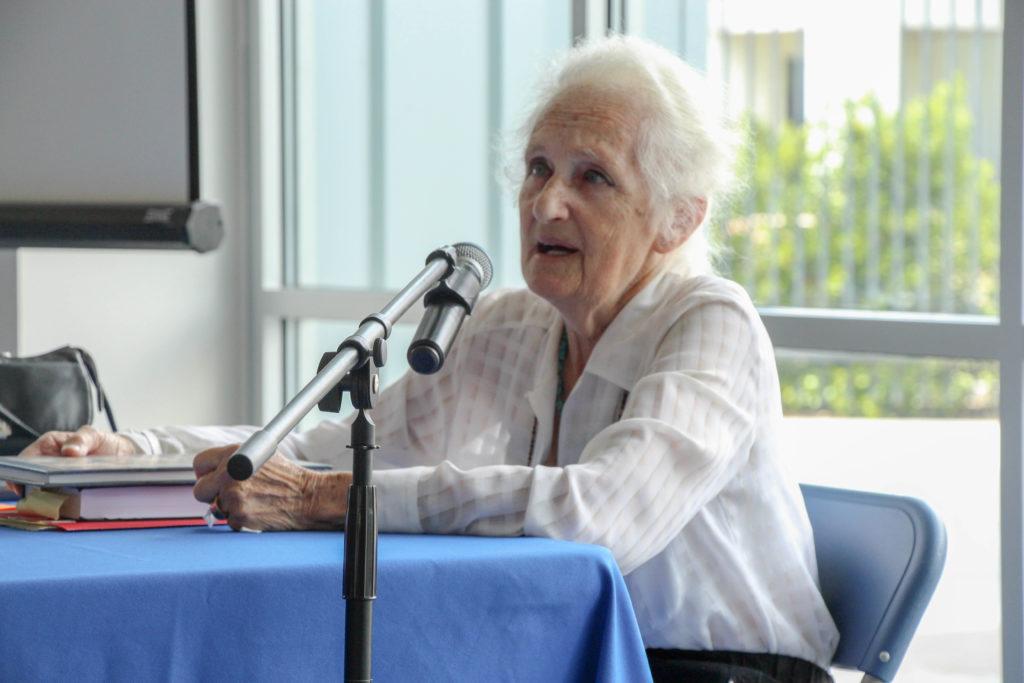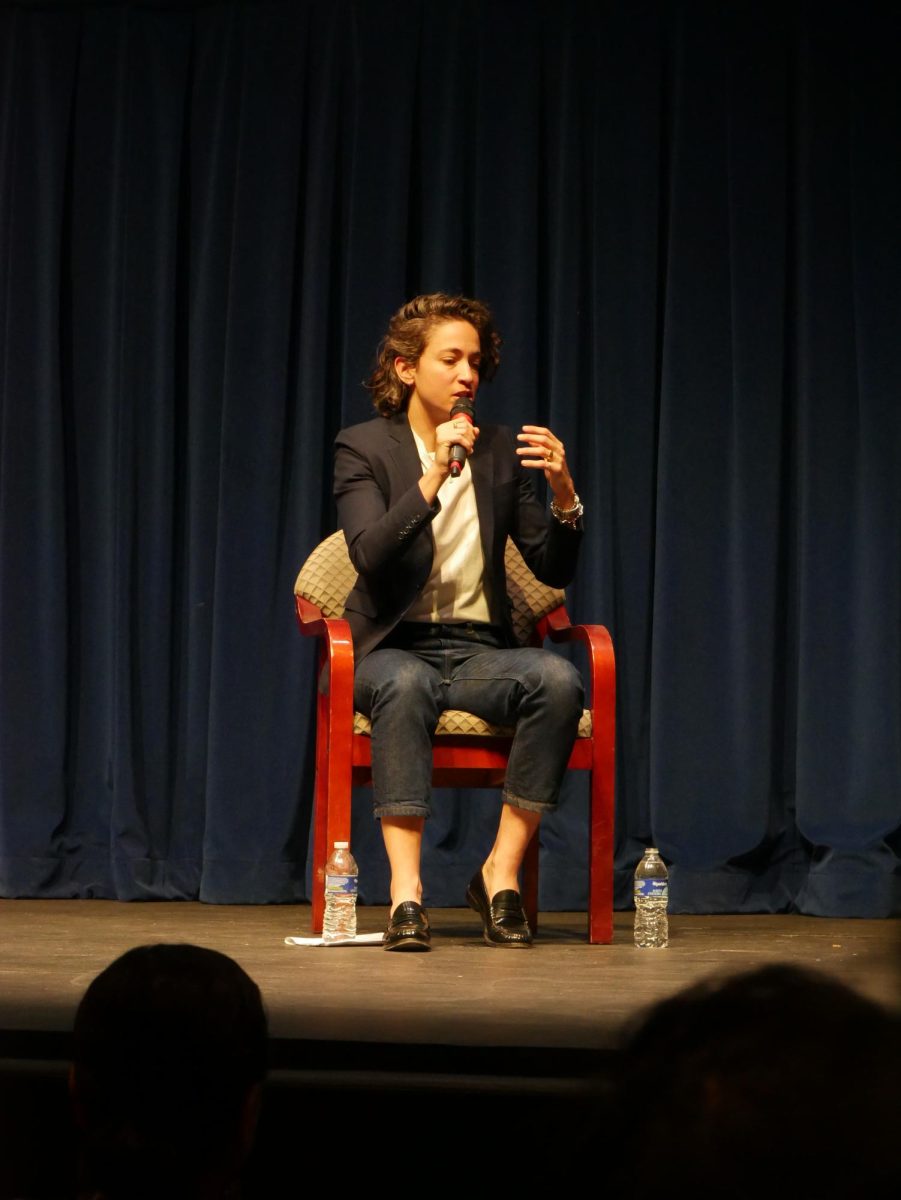By Christopher Sanchez
Reporter
The audience listened in awe as the Holocaust survivor told her story of escaping Nazis in Poland during WWII. Dr. Helena Rozbicka Ganor shared her experiences with a packed room of people at the Student Recreation Center on Tuesday, April 24.
“This was a firsthand account. You can’t hear these things from a text book,” said Eriel Tan, a junior marketing major. “This was not an everyday opportunity.”
Ganor’s book, “Four Letters to the Witnesses of my Childhood,” is written in a form of letters to those who disappeared during the Holocaust. Her book was written as a gift for her grandchildren so they might know her story.
“Year and a half I survived. The beginning of the war, Poland had 32 million people, the town had a million people and only four helped me,” said Ganor. “A woman from the underground, a prostitute, a Polish Nun, and a Nazi Gestapo soldier.”
In 1939, Nazi Germany invaded Poland. Ganor became separated from her family and had to live on the streets of Poland. She was seven years old.
Her father, a doctor, was taken by the Russian army. Her mother was sent to a liquidation camp in 1942 and killed. Her sister, a nurse, in a hospital in the ghetto helped her escape the ghetto.
Ghettos were enclosed sections of towns where the Nazi’s had forced and segregated all the Jewish people to live in.
Ganor’s sister had access to someone who was part of the underground movement who helped people escape the ghettos.
She stayed with the woman before her neighbors threatened to report her to the Gestapo for harboring a Jewish person.
The Gestapo was the Nazi police/soldiers who captured and killed any Jewish people they found.
The woman tried to admit her to an orphanage, but they didn’t admit Ganor. For two years, Ganor lived on the streets, running away and hiding from the Nazis that wanted to kill her.
As a little lice and tick infested girl, she had to eat out of trash cans, take what she could find, and sleep in tall buildings and churches.
Everyone in the audience was stunned at her survival instinct at such a young age.
“As a mom, I think about my kid and it scares me how long she stayed on the streets,” said Jenna Villalobos, a junior, business administration major.
Ganor was aided by some unlikely people. The next person to help her was a prostitute. “Never judge people superficially. There is a deep side to people,” said Ganor.
The German Gestapo soldier who helped her still puzzles her to this day.
Ganor was hiding in a house when the soldiers came. The soldier found her hiding under a table and as the others came closer to the room, he told them there was no one in the room. He closed the door and they left.
During the Q&A section, someone asked Ganor if she would have thanked the soldier.
“No, I wouldn’t thank him. I know for sure that he left that room and killed hundreds others.”
Ganor’s father sent a nurse named Olga to look for her in Poland. Olga found her and reunited her with her father. Ganor’s father married Olga after the war.
In 1968, Ganor came to the United States. She practiced internal medicine till she retired in 2004. Ganor never spoke about her life story until she wrote her book.
During her career, she had patients who were veterans of WWII and they too did not want to talk about their experiences. She encouraged them to write their stories down.
This is how Ganor began writing her book. She hand wrote each of her letters so that her four grandsons could know how her life was.
As Ganor finished her amazing story, people listened in awe as she spoke on the greatest sin a person can commit.
“What counts is not to be indifferent to human suffering. If someone is suffering you help them,” said Ganor. “Please, the only thing you should hate is hate.”
Photo by Andrew Paredez/The Runner
Dr. Helena Rozbicka Ganar talks about her sister and mother whose lives were taken
during the Holocaust.








